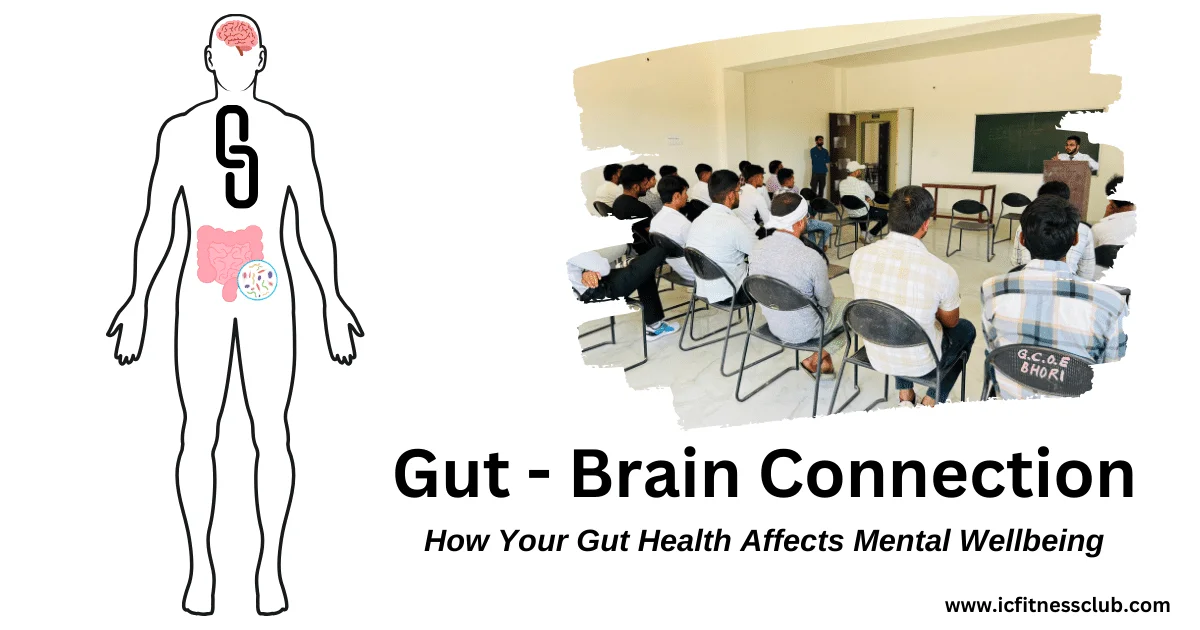Understanding the Gut-Brain Connection: How Your Gut Health Affects Mental Wellbeing
In recent years, scientists have uncovered a fascinating link between the gut and the brain, shedding light on the intricate relationship between our digestive system and mental health. This emerging field of research, known as the gut-brain axis, suggests that the health of our gut directly influences our emotional and cognitive well-being.
The Gut Microbiome: Your Inner Ecosystem
At the heart of this connection lies the gut microbiome, a complex ecosystem of trillions of microorganisms that reside in our digestive tract. These microorganisms, including bacteria, fungi, and viruses, play a crucial role in digestion, nutrient absorption, and immune function.
Research has shown that the composition of the gut microbiome is influenced by various factors, such as diet, stress, antibiotics, and lifestyle choices. A diet high in processed foods and low in fiber, for example, can disrupt the balance of beneficial bacteria in the gut, leading to inflammation and dysbiosis.
Communication Pathways: The Vagus Nerve and Beyond
Communication between the gut and the brain occurs through multiple pathways, including the vagus nerve, neurotransmitters, and immune molecules. The vagus nerve, often referred to as the “brain-gut axis,” serves as a direct line of communication between the gut and the brain, transmitting signals that influence mood, appetite, and stress response.
In addition to the vagus nerve, the gut produces a variety of neurotransmitters and hormones, such as serotonin and dopamine, which play key roles in regulating mood and behavior. Imbalances in these neurotransmitters have been linked to mental health disorders like anxiety, depression, and even autism.
Impact on Mental Wellbeing: From Anxiety to Depression
The connection between gut health and mental wellbeing is perhaps most evident in studies linking gastrointestinal disorders, such as irritable bowel syndrome (IBS), with psychiatric conditions. Research has shown that individuals with IBS are at a higher risk of developing anxiety and depression, highlighting the bidirectional nature of the gut-brain axis.
Moreover, emerging evidence suggests that interventions targeting the gut microbiome, such as probiotics, prebiotics, and dietary modifications, may have beneficial effects on mental health. Studies have found that supplementing with probiotics can reduce symptoms of depression and anxiety, while dietary changes aimed at promoting gut health have been shown to improve mood and cognitive function.
Practical Tips for Gut Health and Mental Wellbeing
So, what can you do to support your gut health and, in turn, enhance your mental wellbeing? Here are some practical tips to consider:
- Eat a Balanced Diet: Focus on whole, nutrient-rich foods like fruits, vegetables, whole grains, and lean proteins. Incorporate probiotic-rich foods like yogurt, kefir, sauerkraut, and kimchi into your diet to promote a healthy gut microbiome.
- Manage Stress: Practice stress-reduction techniques such as mindfulness meditation, deep breathing exercises, yoga, or spending time in nature. Chronic stress can disrupt gut health and exacerbate symptoms of anxiety and depression.
- Get Regular Exercise: Regular physical activity has been shown to support gut health and improve mood. Aim for at least 30 minutes of moderate exercise most days of the week.
- Prioritize Sleep: Aim for 7-9 hours of quality sleep per night. Poor sleep can disrupt gut health and impair cognitive function, making it harder to manage stress and regulate emotions.
- Limit Toxins: Minimize exposure to environmental toxins such as pesticides, pollutants, and chemicals found in processed foods and household products. These toxins can disrupt the delicate balance of the gut microbiome and contribute to inflammation.
Conclusion: Nurturing Your Second Brain
In conclusion, the gut-brain connection is a fascinating area of research that highlights the importance of gut health in promoting overall well-being. By nurturing your gut microbiome through healthy lifestyle choices, you can support not only your digestive health but also your mental and emotional resilience.
Remember, small changes can have a big impact on your gut health and mental wellbeing. Listen to your body, prioritize self-care, and seek support from healthcare professionals if needed. Together, we can harness the power of the gut-brain connection to live happier, healthier lives.
Stay tuned for more insights and tips on optimizing your gut health and mental wellbeing!
To become a certified personal trainer, click below





One thought on “Understanding the Gut-Brain Connection: How Your Gut Health Affects Mental Wellbeing”
Comments are closed.